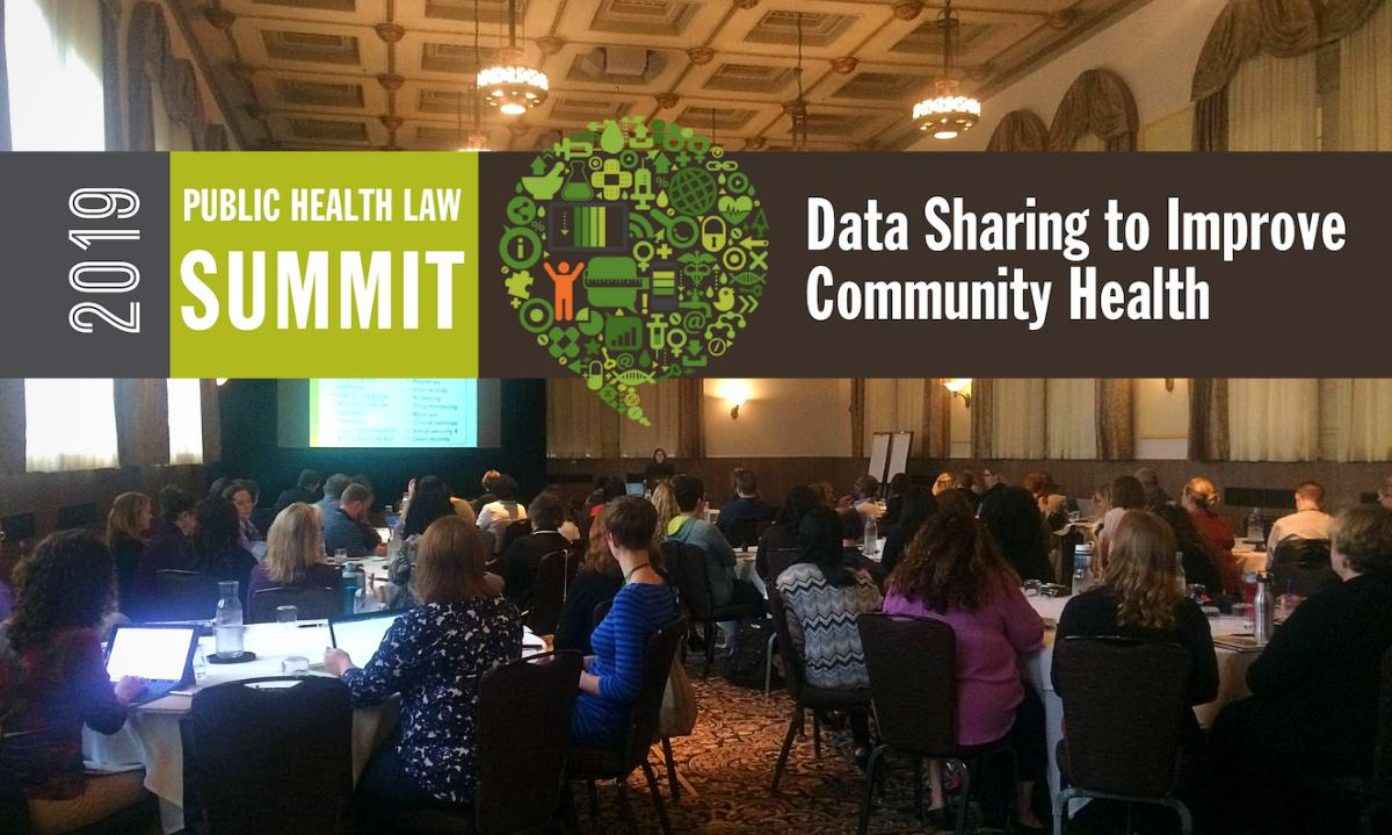Data Sharing to Improve Community Health: Highlights from the 2019 Public Health Law Summit
October 8, 2019
Overview
The Network recently held a two-day Summit focused on strategies to collect, use, share and protect multi-sector data to improve the health of communities. In this Q & A, Sallie Milam, J.D. and Jennifer Bernstein, J.D. deputy directors at the Network’s Mid-States Region Office, which organized the Summit, discuss why the Summit was so important to those working with health data and public health.

Q: Why was it important to hold a Summit focusing on data sharing and community health at this time?
“Public health is what we do together as a society to ensure the conditions in which everyone can be healthy.” Beyond health care, data pertaining to the social and environmental determinants of health are integral to achieving health equity. Collaborating across sectors is essential to ensure conditions where everyone can be healthy. Data are critical for surveillance, epidemiological investigation, research, program development, implementation and evaluation. Increasing data exchange between sectors allows for a better understanding of population health needs. At the same time, sharing data between sectors can be complex due to a patchwork legal scheme that governs data privacy and security. This complexity can impede data sharing and data use. The Summit was aimed at educating attorneys and practitioners on understanding and navigating this legal complexity to facilitate data sharing among sectors.
Q: What did you most want attendees to gain from the Summit?
We hoped that attendees would come away from the Summit with specific strategies for collecting, using, and sharing data between different jurisdictions and sectors more easily while complying with law. We also wanted attendees to understand the ethical considerations that public health must weigh when engaging in data sharing efforts. There is often tension between meeting population health needs while still respecting individual privacy and maintaining community trust.
Q: What, in your mind, were some of the key highlights of the Summit?
The Summit began with an inspiring keynote from Vivian Singletary, MBA, JM, director of the Public Health Informatics Institute, about navigating the road to community data sharing. Ms. Singletary charged attendees to pay attention to data governance and access, transparency, security and data characterization.
Since the law often controls how data can be shared based on the type of data or the source of data, the Summit had several breakout sessions that delved deeply into different areas of law, such as behavioral health, mental health, primary care, environmental health, education, law enforcement and criminal justice. Each session was focused on answering tough legal questions and providing real world examples of how others have successfully shared multi-sector data. A highlight of these breakout sessions was observing the peer learning and the level of participant discussion in each concurrent session about navigating the law to meet public health goals. Participants engaged in meaningful discussion, often sharing their own experiences and insights with the group.
Q: What was the general feedback you received from attendees about what they valued most about the Summit?
The Summit was aimed at providing attendees with an expansive view of the existing data sharing legal landscape. Attendees expressed appreciation for the variety in speakers’ experiences, having heard from speakers engaged in data sharing work at the local, state and tribal levels as well as individuals in private industry. The Summit also covered a wide range of laws in various sectors that impact health outcomes, including behavioral health, mental health, primary care, environmental health, education, law enforcement and criminal justice. These sessions were presented in 2-hour, small group concurrent sessions to provide attendees with the opportunity to dive deeply into the technical detail of each area of law, study current examples of how data is being shared between sectors and have an engaged conversation with the presenters and other attendees.
Slides of the Keynote address along with session presentation slides can be found on the Summit website. The next Public Health Law Summit will be held in 2021 and will focus on law and policy approaches to addressing climate resiliency.
Access the Network’s extensive collection of health information and data sharing tools and resources.
The Network for Public Health Law provides information and technical assistance on issues related to public health. The legal information and assistance provided in this post do not constitute legal advice or legal representation. For legal advice, readers should consult a lawyer in their state.
Support for the Network is provided by the Robert Wood Johnson Foundation (RWJF). The views expressed in this post do not necessarily represent the views of, and should not be attributed to, RWJF.
